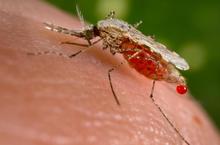A second horse in Oneida County has died from Eastern Equine Encephalitis (EEE). A year and a half old horse from the Town of Vienna died from the virus last weekend.

Continuing fatalities from mosquito-born horse diseases
A second horse in Oneida County has died from Eastern Equine Encephalitis following the death of a year and a half old horse that died from the virus last weekend.
EEE is considered among the most serious mosquito-borne viruses. Horses are susceptible to the illness which almost always proves deadly to the animal.
A vaccine is available for horses, but not for humans. Humans can get the virus from getting bit by an infected mosquito.
You can reduce the threat of EEE by eliminating mosquito breeding areas around your home, avoiding mosquito bites through the use of clothing and insect repellants containing DEET, and limiting activity during times when mosquitoes are most active such as dawn and dusk.
What is the Best Method of Protecting My Horse?
The virus that produces EEE in horses is widespread in wild bird populations and professional vaccination is the only method available to protect horses from the disease. Vaccinations should be administered by a licensed veterinarian to assure that viable vaccine is utilized and injections are properly administered.
Mistakes in vaccination protocol by well-meaning horse owners can result in ineffective protection in an animal that was thought to be risk free. All too frequently, owner vaccinated horses develop overt cases indicating that the animal was improperly vaccinated or was vaccinated with vaccine that had lost its protective properties. Properly administered vaccinations are effective for only one year, thus, booster shots are required on an annual basis.
Newly vaccinated animals require a two-shot series administered 2-4 weeks apart before protection can be guaranteed. Foals should be re-vaccinated during summer to ensure protection during the first year of life. It is recommended in the face of a fall epidemic, horses vaccinated in March should be boostered later in the season.
